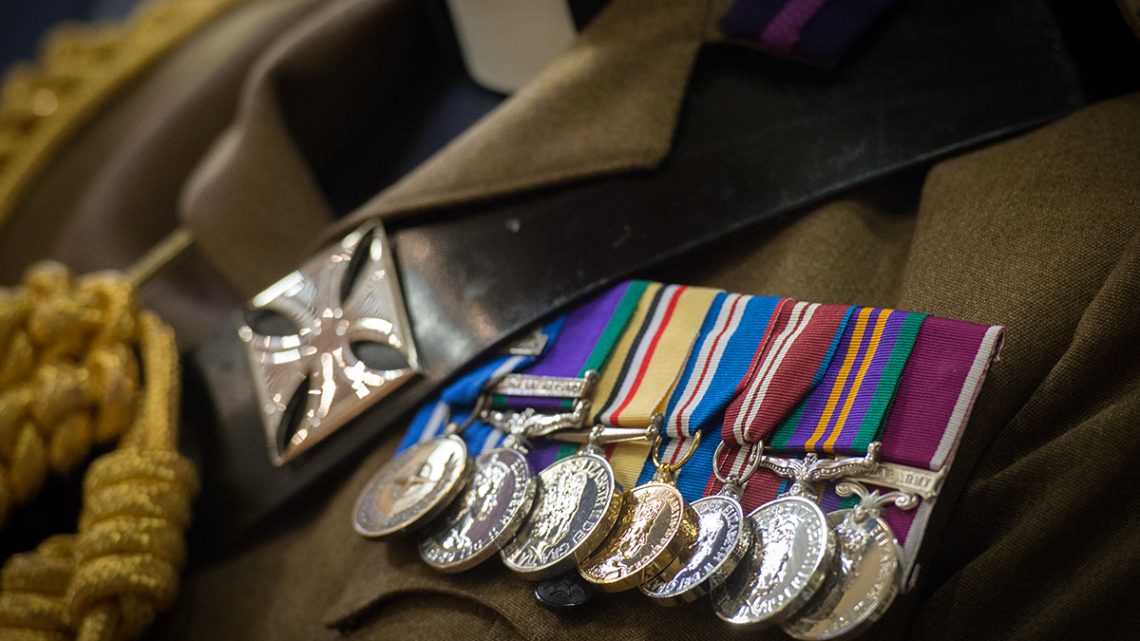
2 April marks forty years since the Falkland Islands (Malvinas) ten-week conflict between Argentina and Britain that claimed the lives of three Falkland Islanders, as well as 649 Argentine and 255 British military personnel.
The Falkland Islands (Malvinas) has been on the United Nations list of Non-Self-Governing Territories since 1946, as a dispute exists between the Governments of Argentina and the United Kingdom of Great Britain and Northern Ireland concerning sovereignty over the Falkland Islands (Malvinas). The UN General Assembly’s subsidiary body, the Special Committee on Decolonization, has been considering the question of the Falkland Islands (Malvinas) since 1964.
Ahead of this milestone anniversary, British veterans of the war recently travelled to Buenos Aires with the Bishop of the British Armed Forces, Paul Mason for a series of events, including an ecumenical service in which they prayed for renewed fraternity and peace.
On his return to the UK, the bishop spoke to Vatican Radio about the visit and the impression it left on him.
“The message that I take is that the hope that is possible; if they can be reconciled then surely we can all be reconciled.”
He explained that the event was organized by a group of Argentinian veterans called the “Faith of the Centurian” who are very much motivated by their own faith and want to promote fraternity and reconciliation between veterans on both sides.
As part of the programme, there were prayer services at both the Anglican Cathedral in Buenos Aires and the Catholic Basilica in Lujàn.
“What was very important about the time together,” said Bishop Mason, “was the afternoon they spent where veterans would take turns standing up, taking the microphone and talking about their experience of the war,” which he added, was a very cathartic moment.
Four decades on from the Falklands conflict, war again rages in Europe. The invasion of Ukraine by Russia has seen a humanitarian catastrophe unfold and military personnel killed on both sides.
“What comes to my mind when I met the veterans on both sides; these are the people who end up in the conflict and who are having to suffer the physical pain of conflict which is not of their making,” said the bishop.
This is a “classic example of what is happening in Ukraine,” and so “you can’t help feeling sorry for those who are thrown into the midst of conflict.”
Last weekend, there was the commissioning of a new chaplain into the Army Chaplains Department. The chaplain was Ukrainian and was introduced to the British Army Major General.
After hearing the chaplain was from Ukraine, said the Bishop, the Army General stopped, “he wrapped his arms around the chaplain; he said, ‘we’re all with you in spirit and supporting you’, which really was quite a touching moment.”
This gesture, noted Bishop Mason, underlined that there is empathy and solidarity, which is what he witnessed at the weekend.
Over the last few weeks, people around the world have been praying for an end to the war in Ukraine. Last Friday, Pope Francis consecrated both Russia and Ukraine to the Immaculate Heart of Mary.
Bishop Mason observed that certainly from the Argentinian perspective, the recent programme of events in Buenos Aires was motivated by their sense of faith and prayer.
He also recalled a ceremony in Rome three years ago which saw a statue of Our Lady of Lujàn, Patroness of Argentina, returned to the country.
The statue had travelled with Argentine soldiers for divine protection during the conflict in 1982.
At the end of the conflict, the statue, itself a replica, was taken back to the UK, finding a home at the Catholic Military Cathedral of St Michael and St George in Aldershot.
The Cathedral was given another replica by Argentinian Bishop Santiago Olivera.
Just like the recent visit to Argentina, Bishop Mason noted that this gesture in 2019 serves as a symbol of unity in prayer and in faith.
I don’t think such depths of reconciliation and the motivation for such reconciliation can come from nowhere. I think it comes from a deep-seated place of prayer and a place of faith, and I saw that on both sides as a motivating factor.
Bishop Paul Mason
Those of us who have faith and who pray, he said, can show the way to promoting real reconciliation.
Source: vaticannews.va